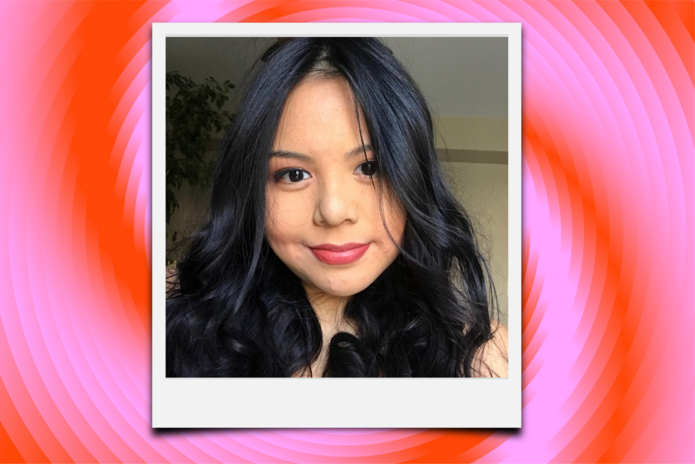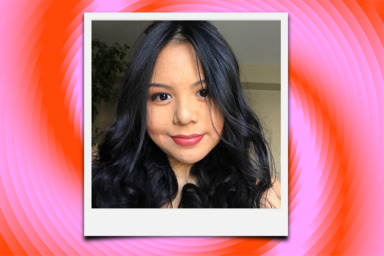Growing up in a suburban town just outside one of the world’s most diverse cities, I never had a problem with finding people who looked like me. Filipinos were quite literally everywhere — my next door neighbors were Filipino, my circle of friends in high school was all Filipino, and it wasn’t uncommon for my parents to bump into someone at the grocery store and start speaking Tagalog (the language of the Philippines) as if they had known one another their whole lives.
There’s a certain sense of security that comes with living in a community of people who not only look like you, but also understand your culture without explanation. My circle of high school friends all knew what it’s like to attend a crazy Filipino party, and my next door neighbors cooked Filipino food just as my family did. These are the aspects of my Filipino heritage that I took for granted once I moved to a city where the Filipino community was a fraction of what I was used to. But what I’ll never take for granted are the lessons I’ve learned from these experiences, the ones that have shown me how my culture impacts my identity.
Looking for a sense of belonging
My freshman year of college, I moved 250 miles from my home in the Toronto area. I was excited for dorm life and to experience something completely different from my home life. I said goodbye to the traditional Filipino dishes home-cooked by my mom and the sound of Tagalog being spoken on the phone between family members. However, it wasn’t long before I realized that I had actually said goodbye to something much greater. As I explored my new city and school in Ottawa, it became increasingly obvious that the couple dozen or so Filipino people I might see on a casual walk in my hometown far outnumbered the sparse handful of Filipino faces I’d see on any given day in my college town. I found myself searching for a familiar face in a stranger in every lecture hall I entered and every library cubicle I passed by.
There’s something to be said about the act of searching — it makes you feel lonely without even realizing. The constant searching for something familiar became a default setting that my mind went to. Wait, was that a Filipino flag stitched onto her backpack? Did I just hear Tagalog on the bus? These are questions I never had to consciously ask myself back in my hometown because Filipino culture was something I naturally accepted as part of my everyday life — an integral piece that I overlooked too easily. According to the Embassy of the Philippines in Canada, a 2016 census reported roughly 254,000 Filipinos living in Toronto, compared to Ottawa’s 12,700. This meant I had to make a continuous effort to find cultural representation where it was less common.
It wasn’t easy, but it was worth it. I managed to find a Filipino restaurant not too far from campus that made traditional dishes just as good as the ones made by my grandmother, and I met a new friend in my program who shared their own experience of navigating Filipino identity in a city where it often feels scarce (I’ve also learned that defining your identity is something that a lot of BIPOC individuals struggle with). I even discovered that my university had a small club dedicated to my ethnic culture!
Undoubtedly, I learned that when you take your culture for granted — aka, when you feel jolted after you’re suddenly not surrounded by it anymore — it’s up to you to make an effort to find that sense of belonging, even if it’s in the smallest of places. It came with a new type of acceptance, too. While I understood that I probably wouldn’t find a sea of faces that looked like mine the next time I went to the mall near my college, the familiar faces I found on my own would make my love for my culture all the more powerful.
An appreciation for my ethnic background
The second-ever Filipino person I met in Ottawa was a guy I dated briefly, whom I was thrilled to learn was half-Filipino when we first started talking. A few dates in, we started talking about Filipino traditions and typical Filipino family life, and I was taken aback when he casually told me that he didn’t like being Filipino. He made it very clear to me that he didn’t like the food or the natural family loudness, even going as far as saying that he really didn’t like anything about his Filipino side.
It was off-putting, to say the least, to hear someone reject their culture outright. To reject my culture outright. You probably think that I broke it off with him immediately, because who could possibly be with someone who didn’t appreciate their ethnic culture and instead proclaimed their distaste for it so profoundly to a romantic partner? A partner with whom they shared that very same culture? But I didn’t break it off. I thought that this kind of extreme cultural disconnection was normal, and that I should simply accept his stance because maybe there was something I wasn’t seeing.
In hindsight, it’s true. I wasn’t seeing something, but it wasn’t some sort of stereotype-based negative perspective on Filipinos. It was the fact that full acceptance of your race, ethnicity, and culture can only come from reconciliation within yourself — a continuous effort to fully welcome all parts of your culture into your life as a part of your identity. A constant effort to become more educated on your culture and seek out more ways to incorporate it into your everyday life. This means appreciating your culture to the extent of standing up for it, even when you might feel overshadowed or afraid (or naively infatuated with your first love, like I was). I wish someone had told me this before this guy ended up breaking my heart, but this is a lesson I’ll always be grateful for.
Learning what my culture means to me
By far the greatest lesson I have learned from moving from a city with a large Filipino population to one with a comparatively small one is that my culture means more to me than I had ever realized before. I guess it’s true that you really don’t know what you have until it’s gone, because I didn’t know how significant my Filipino culture was to me until I was no longer accustomed to seeing it everywhere.
Finding this new sense of meaning in my Filipino background showed me that culture is meant to be shared. This also includes my own efforts in learning about the cultures of people who aren’t Filipino, because culture is meant to be welcoming to those who are happy to celebrate it and learn about it with you. For me, cultural education means exchanging and sharing cultural traditions with friends, supporting Asian brands and businesses, and asking my family members more about my culture whenever possible. It also means working on myself and my own biases in order to understand how my cultural background intersects with other aspects of my life, such as my social groups, education, and feminism.
Being Filipino is a part of me that goes beyond just me. My culture not only represents an acceptance of myself, but also an acceptance of my history, my family, and the stories that we carry with us. Yes, I’ve taken my culture for granted. But through making a continuous effort towards education and reconciliation, I’ll never do it again.


